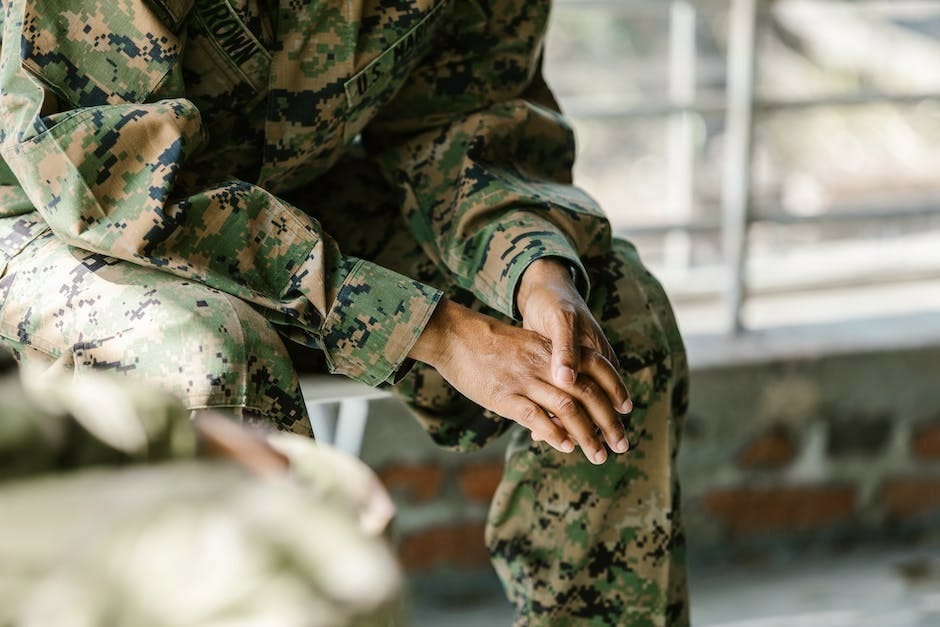
It has been said that a nation can be judged by the way it treats its Veterans. If this is true, then how should the United States be judged? In some ways, it does an impressive job of caring for those who have served, such as ensuring that they receive financial benefits and employment opportunities. However, in other avenues, the United States seems to be falling short. One of those avenues is helping Veterans with addiction and mental health issues. This is a big oversight. Because Veterans are more likely to face these problems. Yet, many people still ask, “Why are Veterans susceptible to addiction?”
The Prevalence of Addiction and Mental Illness Among Veterans
According to the U.S. Department of Veterans Affairs (VA), “In the wars in Iraq and Afghanistan, about 1 in 10 returning Veterans seen in VA have a problem with alcohol or other drugs.” Also, “Almost 1 out of every 3 Veterans seeking treatment for SUD [substance use disorder] also has PTSD [post-traumatic stress disorder],” and “more than 2 of 10 Veterans with PTSD also have SUD.” Now, not only are these statistics rather staggering, but they are also significantly higher than many civilian populations.
So, if there are more Veterans susceptible to addiction, then why aren’t there more focused attempts to get them the help they need? The answer is that there is often not enough funding, not enough research, and not enough outreach. It is also true that many Veterans are unaware that they have an issue until it is too late, which is why “U.S. military veterans are estimated to be a large portion (around 11 percent) of homeless adults.”
So, with these types of statistics, it appears that the U.S. is failing its Veterans in helping with addiction and mental illness. This has to change.
Some of the Causes: Why Are Veterans Susceptible to Addiction?
So, why are Veterans susceptible to addiction? The ultimate answer is that there are many answers. However, perhaps the most common cause that makes Veterans susceptible is the experiences they have while on active duty.
Veterans who have experienced active duty have potentially gone through traumatic experiences that most civilians will never have to endure. These traumatic experiences can easily cause issues of PTSD. This is also why combat duty is one of the most prevalent causes of PTSD. Also, when this PTSD isn’t addressed early and professionally, Veterans are left to manage it themselves, and one of the ways that they often do this is via alcohol and substance use.
Another reason that makes veterans susceptible to addiction is that they often have trouble integrating back into civilian life. This is, of course, not their fault. It is understandably a challenging transition from often life-and-death situations to more conservative occupations. Yet another reason that makes Veterans susceptible is that alcohol and substance use is often a large part of the culture of active duty soldiers, and this culture can follow these soldiers home. The issue is that when this alcohol and substance use becomes a coping mechanism, it can lead to addiction.
How to Best Help Veterans Susceptible to Addiction
Because Veterans are more susceptible to addiction, it becomes all the more important to advocate for them to get the help they need. The good news is that there are many ways to support the Veteran community.
One of the best ways to support Veterans struggling with addiction is to simply ask them if they need help. Too often, these service members are ignored because people are intimidated to engage them because, as civilians, they feel like they can’t relate. But, it is important to remember that everyone needs help sometimes, no matter what type of position they held or still hold.
Another way to help Veterans susceptible to addiction is to connect them to a recovery center that focuses specifically on their needs. Recovery must be individualized. So, that means for Veterans, there must be a program that takes their service history into account. This may be through the VA, but many other treatment centers have specialized programs for Veterans.
The Importance of Population-Focused Addiction Care at Lantana Recovery
At Lantana Recovery, we avoid “cookie-cutter” treatment plans at all costs. We know that recovery that doesn’t focus on specific individual needs rarely works in the long term. This includes programs that don’t focus on the specific needs of Veterans.
When speaking about our Veterans, President John F. Kennedy once said, “As we express our gratitude, we must never forget that the highest appreciation is not to utter words, but to live by them.” That is why at Lantana Recovery, we don’t just talk about helping Veterans; we do the work.
At Lantana Recovery, we have specialized programs to treat Veterans because addiction is generally significantly more prevalent among this population. However, why are Veterans susceptible to addiction? While there are many answers to this question, one is that the trauma that these individuals go through, accompanied by a lack of assistance following service, plays a major role in the development of their addiction. If you are a Veteran or know a Veteran who is struggling with addiction, we can help. For more information on the reasons why the Veteran population is susceptible to addiction, what treatment looks like for these individuals, and how to offer hope to those currently struggling, reach out to Lantana Recovery today at (866) 997-2870.








